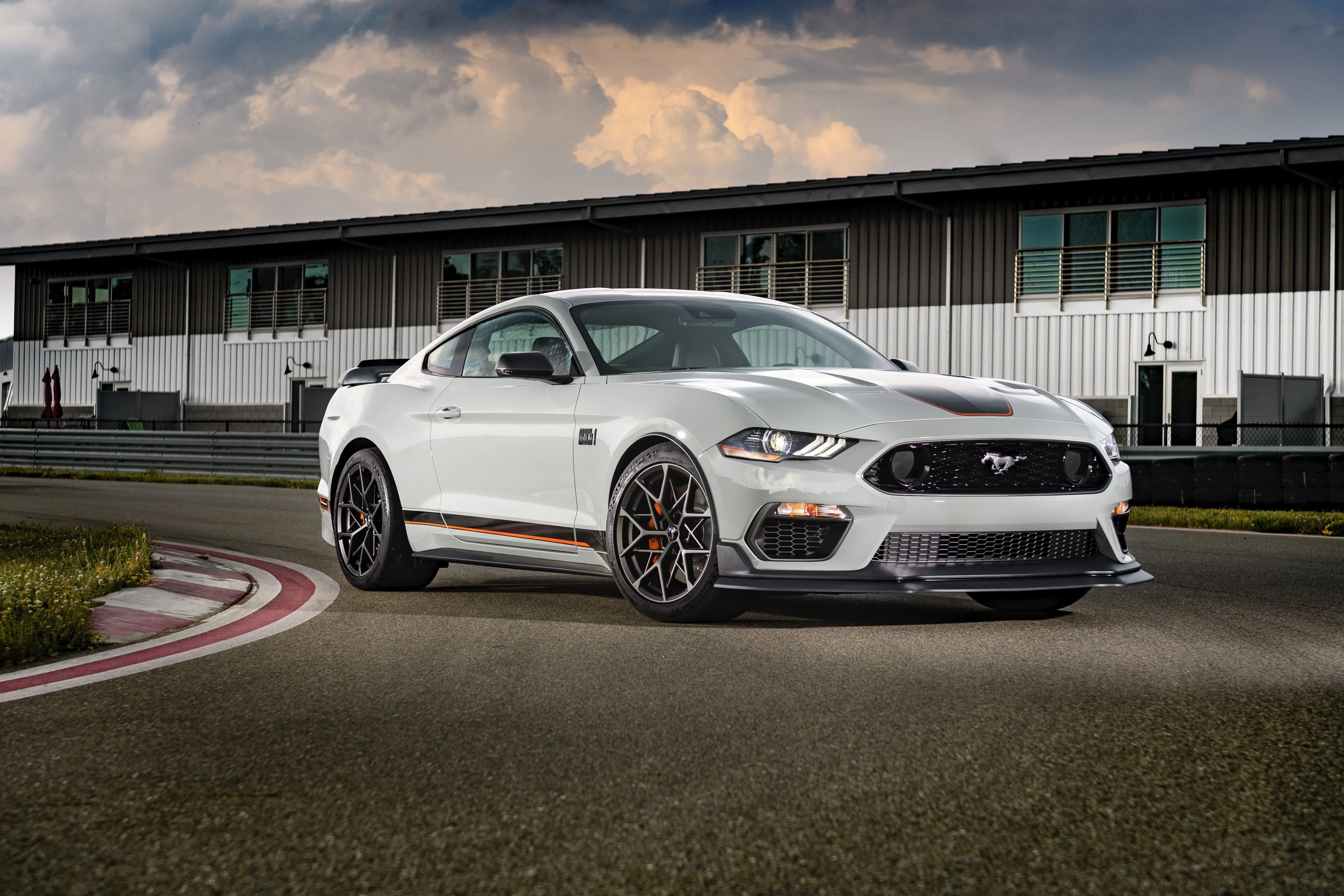Ford has gone all-in on electric vehicles. The Mustang Mach E and upcoming F-150 Lightning have been incredibly popular — to the point Ford will be restructuring the company to accommodate them better. But Ford may not be 100% closing the door on internal combustion just yet.
Muscle Cars & Trucks recently uncovered a Ford patent detailing a method for building a turbocharged hydrogen internal combustion engine — not the engine itself. Hydrogen internal combustion paired with Ford’s clutch-by-wire manual transmission system could help keep the traditional feel alive for sports cars like the Mustang.
Hydrogen combustion is different from hydrogen fuel cells in vehicles like the Toyota Mirai. The Mirai uses hydrogen to generate electricity to run an electric motor; hydrogen combustion, meanwhile, uses an engine that strongly resembles a current gasoline combustion engine, just with a different fuel source.
A car running on hydrogen combustion would be cheaper to develop than an EV, as much of the componentry and design could carry over from a century-plus of combustion car engineering. Hydrogen is also plentiful and more easily accessible than the rare earth elements needed for lithium-ion batteries.
But there’s also a complete absence of hydrogen infrastructure in the United States outside of California. The technology still has a lot of work to do to be commercially viable — oh, you didn’t want two massive hydrogen storage tanks where your rear seats would be? And it’s not an entirely zero-emissions combustion process. There would still be trace CO2 and nitrous oxide emissions to deal with.
Toyota — a brand long skeptical of battery-electric vehicles despite the recent shift — has been the most prominent proponent of hydrogen combustion technology, building a potential hydrogen V8 engine for the TNGA-F trucks and testing hydrogen-powered race cars.
Keep in mind, Ford holds patents for some weird things that will never make it to production. And a hydrogen combustion engine does not feel like it’s an imminent prospect. But one could see manufacturers exploring battery-electric alternatives like hyrdorgen down the road for niche applications — like, say, a popular sports car that doesn’t quite recapture the magic as an electric vehicle.
